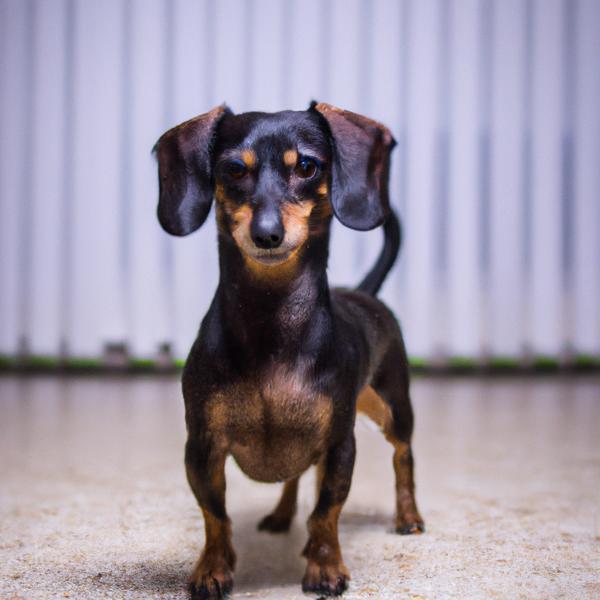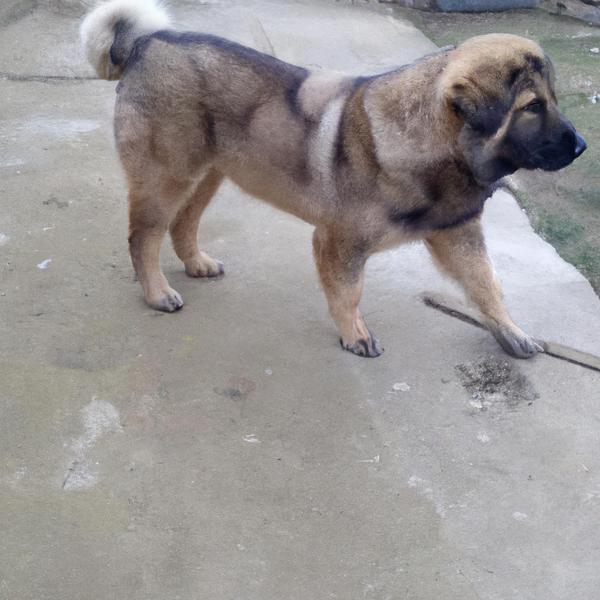Schweenie vs. Pughasa: Breed Differences and Similarities
Hypoallergenic
Are Schweenies or Pughasas hypoallergenic, or neither?
Unfortunately, neither Schweenie nor Pughasa are hypoallergenic, which may not make them the best choice for dog lovers who suffer from pet allergies.
Temperament
What are the personalities of Schweenie and Pughasa dogs?
Active
Playful
Stubborn
Happy
Courageous
Intelligent
Friendly
Outgoing
Devoted
Lively
Gentle
Clever
Playful
Alert
Courageous
Intelligent
Friendly
Affectionate
Obedient
Loyal
Devoted
Lively
Gentle
Going
Steady
Spirited
Assertive
Cheerful
Shedding Level
Do Schweenies shed more than Pughasas, or which breed sheds more, Schweenies or Pughasas?
Schweenies shed very little hair, making them a great choice for those who dislike excess hair in the house.
Pughasas are heavy shedders, but regular brushing can help manage shedding and promote a healthy coat.
Watchdog Ability
Which dog breed makes a better watchdog, the Schweenie or Pughasa?
Schweenies aren't great guard dogs; they tend to just watch without taking action.
Pughasas make excellent watchdogs - they're vocal and protective of their territory.
Origin
What is the origin of Schweenie and Pughasa dog breeds?
Europe
United States
Ancestry
What are the origins of Schweenie and Pughasa breeds?
Shih Tzu, Dachshund
Lhasa Apso, Pug
Breed recognition
Which kennel clubs recognize/register Schweenie and Pughasa?
ACHC = American Canine Hybrid Club
DBR = Designer Breed Registry
DDKC = Designer Dogs Kennel Club
DRA = Dog Registry of America, Inc.
IDCR = International Designer Canine Registry®
ACHC = American Canine Hybrid Club
DBR = Designer Breed Registry
DDKC = Designer Dogs Kennel Club
DRA = Dog Registry of America, Inc.
IDCR = International Designer Canine Registry®
Date of Birth
When were Schweenie and Pughasa breeds first developed?
Unknown
Coat Color Possibilites
What are the natural colors of the coat for Schweenie and Pughasa breeds?
Black
Gray
Brown
Brindle
White
Black
Fawn
White
Coat Length
What is the typical coat length for Schweenie and Pughasa breeds?
The coat of Schweenie and Pughasa dogs falls in the medium-length category.
Coat Density
What is the density of the coat of Schweenie and Pughasa?
Coat Texture
What is the hair texture of Schweenie and Pughasa?
Straight
Wiry
Litter Size
What is the usual litter size for Schweenie and Pughasa?
A Schweenie can have a litter of 4-8 puppies on average. However, it's worth noting that the size of the litters can vary greatly. Factors that can influence litter size include the health of the mother, breeding history, and genetics.
A Pughasa can have a litter of 4-6 puppies on average. However, it's worth noting that the size of the litters can vary greatly. Factors that can influence litter size include the health of the mother, breeding history, and genetics.
Adaptability
Schweenie and Pughasas are known for their adaptability and versatility. They are capable of adapting well to a wide range of lifestyle changes and living environments, making them great companions for families and individuals of all lifestyles.
Health Issues
Between Schweenie and Pughasa, which breed is more prone to health problems?
While the Schweenie breed is generally healthy, occasional vet check-ups are still necessary to address any health concerns.
Pughasas typically have low vet costs due to their good health, but it's important to monitor their health and seek vet care when necessary.
Major Concerns
What are the major health concerns for Schweenie and Pughasa breeds?
Patellar Luxation
Hip Dysplasia
Portosystemic Shunt
Brachycephalic Syndrome
Keratoconjunctivitis Sicca (Dry Eye)
Entropion
Intervertebral Disc Disease
Legg-Calve-Perthes Disease
Necrotizing Meningoencephalitis
Liver Shunts
Urolithiasis
Minor Concerns
What minor health issues should be kept in mind when owning Schweenie and Pughasa?
Allergies
Bladder Stones and Infections
Hydrocephalus
Eye Problems
Brachycephalic Syndrome
Corneal Ulcer
Occasional Tests
What occasional tests are recommended for Schweenie and Pughasa breeds?
Full Body Physical Examination especially of the joints
Eye
Blood
Liver Ultrasound
Skeletal
X-Rays
CT Scan
Physical Examination
Allergy Tests
Respiratory Tests
Energy
How do the energy levels of Schweenies and Pughasas compare?
Schweenies have low energy levels, ideal for a relaxed lifestyle.
Pughasas are suitable for those with a balanced lifestyle as they have an average energy level.
Social Needs
Schweenie vs Pughasa social needs comparison
Schweenie has very high social needs and requires regular mental and physical stimulation, a job or purpose, and companionship.
Pughasa has above average social needs and thrives with interaction with humans and other dogs.
Exercise Needed
Schweenie vs Pughasa exercise need comparison.
Schweenies need only a small amount of physical activity, ideal for busy or elderly people or those with limited space.
Pughasas need moderate physical activity and are great for families and active individuals.
Sleeping Need
Which of the two sleeps the most/least: Schweenie or Pughasa?
Schweenies are known for their relaxed and calm nature and enjoy long periods of sleep.
Pughasas have moderate energy levels and typical sleep patterns of 12-14 hours per day.
Tendency to Bark
Do Schweenies or Pughasas bark more/less frequently?
Schweenies bark moderately when necessary and may also bark due to certain triggers like fear, alarm, boredom, greeting, separation anxiety and compulsive barking.
The Pughasa is a vocal breed that frequently barks and howls, and may not be suitable for those seeking a quiet companion.
Mouthiness
Mouthiness Comparison: Schweenie vs Pughasa?
Roaming urge
Schweenie vs Labrador: Running away tendency?
Prey Drive
Schweenie or Pughasa - which breed has a higher level of prey drive?
Past times
What are some enjoyable activities and ways to keep Schweenie and Pughasa entertained?
Walk, Play, Run, Fetch, Play keep away, Hide & Seek, Sleep, Do some mess, Watch tv, Cooking, Training, Puzzle games, Cuddling, Boat ride, Tug-of-war, Nap, Bath time, High Five, Walking, Running, Sleeping, Road trip, Cuddles, Run and play, Naps, Playing, Ball, Throwing ball
Play keep away, Walk, Tug-of-war, Dressing up, Run, Playing
Activity Level
Which breed has higher energy, Schweenies or Pughasas?
Schweenies are low-energy dogs. This breed make a great companion for a relatively inactive person. Schweenie dogs require a few short daily walks, and then they're happy snuggling next to you for the rest of the day.
Pughasas are medium-energy dogs and typically enjoy socializing and playing casual or even sustained games of chase with other dogs. They may also have occasional periods of barking or racing around the house.
Tolerance of being left alone
Walks per Week
How many miles should Schweenie or Pughasa walk each week?
There's really no limit to how far you walk your dog as long as they're comfortable. For Schweenie, it's at least 4 miles / week. Just remember to build distance and stamina gradually over time.
There's really no limit to how far you walk your dog as long as they're comfortable. For Pughasa, it's at least 8 miles / week. Just remember to build distance and stamina gradually over time.
Activity per Day
Do Schweenies or Pughasas require more exercise?
In general most Schweenies usually need at least 30 minutes of exercise daily. This can be spread across the day and include all sorts of high-energy activities, like walking, running and playing.
In general most Pughasas usually need at least 25 minutes of exercise daily. This can be spread across the day and include all sorts of high-energy activities, like walking, running and playing.
Grooming
Which breed is easier to maintain in terms of grooming, Schweenies or Pughasas?
Schweenies require significant grooming, including regular trims and professional grooming assistance to maintain their coat. They may also require frequent bathing to keep their coat and skin healthy.
The Pughasa requires an average amount of grooming compared to other breeds.
Brushing Frequency
What is the recommended brushing frequency for Schweenie and Pughasa dogs?
Schweenie should be brushed at least once a week. Of course you can give them more frequent brushes if you find that they are still shedding a lot
Ideally, Pughasa should be brushed at least 2 or 3 times a week (preferably daily) improve shedding.
Brushing Tools
What brushing tools are used for Schweenies and Pughasas?
Pin Brush
Scissors
Nail Clipper
Pin Brush
Comb
Scissors
Nail Clipper
Cups
How much food should be given to Schweenie or Pughasa in cups?
Schweenie and Pughasa share the same recommended daily food intake of 1 cups, although the appropriate quantity may vary depending on the quality and nutritional content of their food.
Daily Cost
Which breed has a higher daily cost, Schweenie or Pughasa?
The average cost of a Schweenie is somewhere $1.10 - $1.40 per day.
The average cost of a Pughasa is somewhere $1.00 - $1.40 per day.
Monthly Cost
Which breed has a higher monthly cost, Schweenie or Pughasa?
When it comes to monthly expenses, both Schweenie and Pughasa have a similar average cost, ranging from $35 - $42. This results in an average yearly cost of around $420 - $504.
Intelligence
Comparing Intelligence: Schweenies vs Pughasas
Schweenie and Pughasa have average obedience intelligence, but they're also independent thinkers. This breed is known for having an exceptionally high IQ, which means they may get into trouble if left to their own devices.
Sensitivity Level
How do Schweenie and Pughasa compare in sensitivity?
These breeds are more sensitive than others and easily overwhelmed by new surroundings and people. Schweenie and Pughasa need gentle handling and a calm, stable home environment with positive reinforcement training.
Affection Dependance
Which is the more affectionate dog breed: Schweenie vs Pughasa?
Apartment Friendly
Which breed is more apartment-friendly: Schweenie or Pughasa?
Schweenies and Pughasas are known for being excellent apartment dogs. They are fairly active indoors and will do okay without a yard.
Child Friendly
Do Schweenies or Pughasas have a friendlier temperament towards children?
Schweenies are not the best choice for families with kids.
Pughasas make excellent family pets for kids due to their gentle, protective nature and calm temperament.
Senior-friendly
Which dog is more suitable as a pet for the elderly - Schweenie or Pughasa?
Cat Friendly
Do Schweenie or Pughasa breeds have a better compatibility with cats?
Schweenies are good with cats, but early training is needed to prevent chasing behavior.
Pughasas are very friendly with cats and make great companions for them.
Dog Friendly
Which breed is more sociable with other dogs: Schweenie or Pughasa?
Schweenies are friendly and active companions, and can be good family pets, though their friendliness towards other dogs may vary.
Pughasas are generally very friendly towards other dogs, with a happy and affectionate temperament.
Pet friendly
How do Schweenie or Pughasa dogs interact with other pets?
Stranger Friendly
Which breed is more friendly with strangers: Schweenie or Pughasa?
Schweenies are averagely friendly around strangers but benefit from early socialisation.
Pughasas are friendly but may bark at strangers, and training is easy due to their intelligence.
Playfulness
Which breed is more playful between Schweenie and Pughasa?
Schweenie and Pughasa have an average level of playfulness. Like other dogs, they enjoy playing, but they are not the most playful dog breed.
Trainability
How do the trainability levels of Schweenies and Pughasas compare?
Schweenies are popular for their ease of training and quick learning ability.
Pughasas are usually easy to train but require consistency to fully obey commands.
Compare Schweenie with other breeds
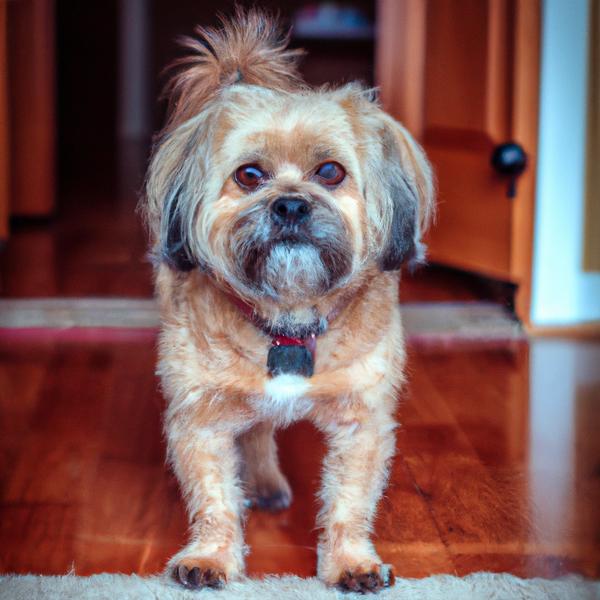
Pugapoo
Schweenie vs Pugapoo
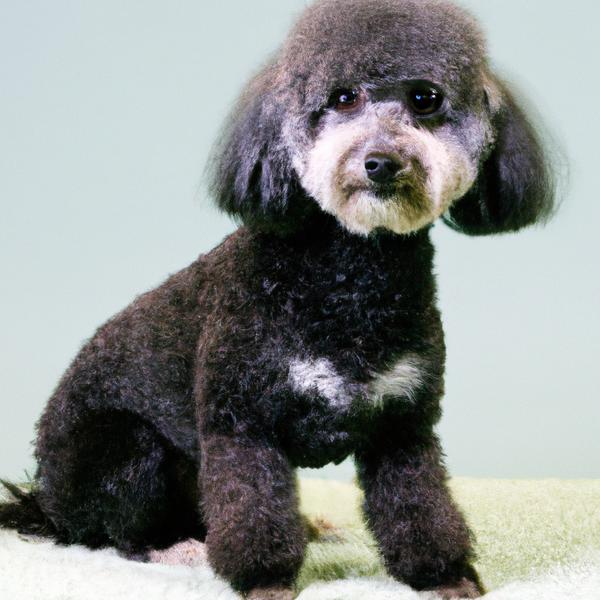
Pinny-Poo
Schweenie vs Pinny-Poo
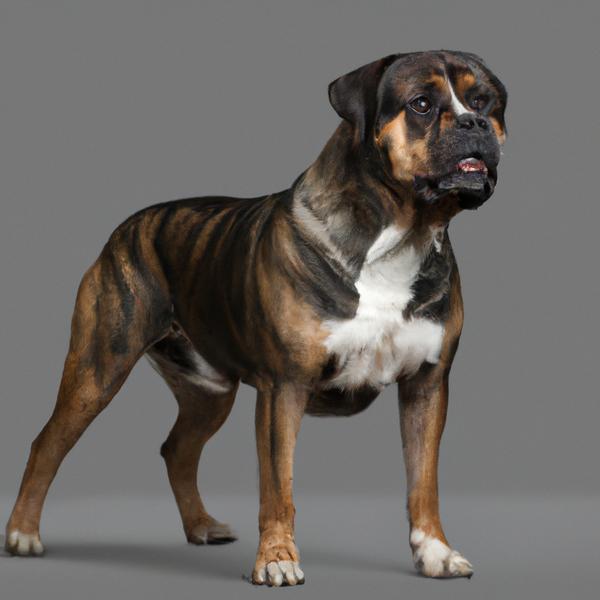
American Bandogge
Schweenie vs American Bandogge
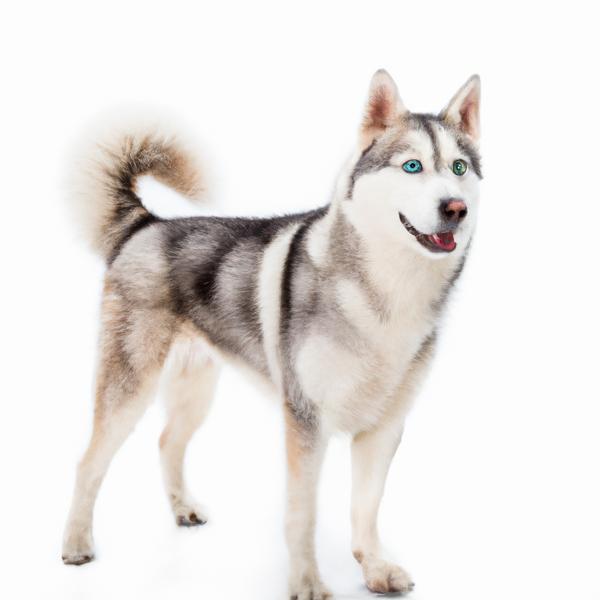
Siberian Husky
Schweenie vs Siberian Husky

Patterdale Terrier
Schweenie vs Patterdale Terrier
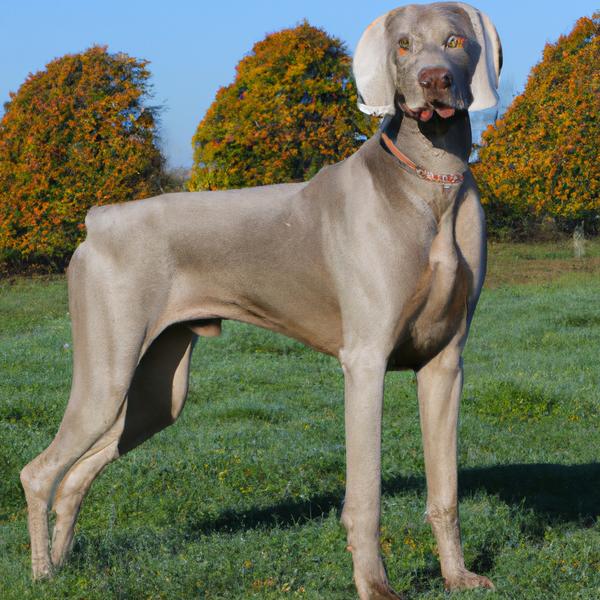
Weimapeake
Schweenie vs Weimapeake
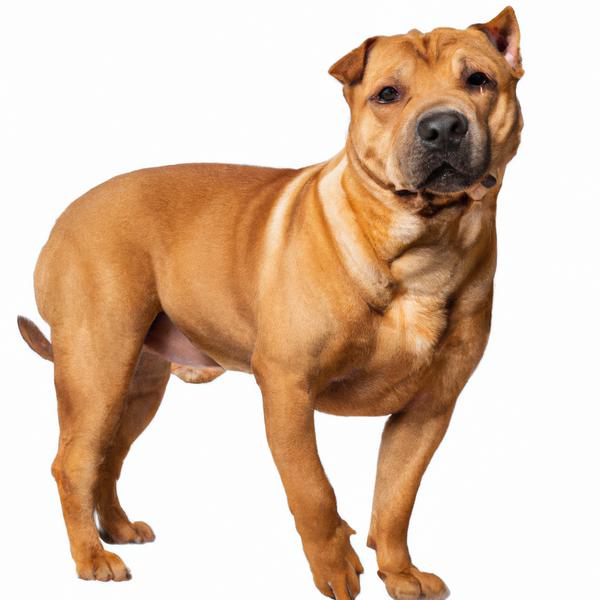
Shar-Pei Pitbull Terrier
Schweenie vs Shar-Pei Pitbull Terrier
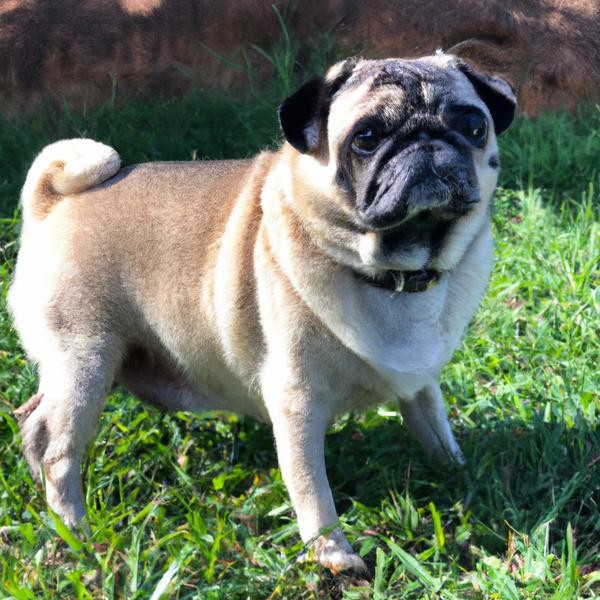
Puggat
Schweenie vs Puggat
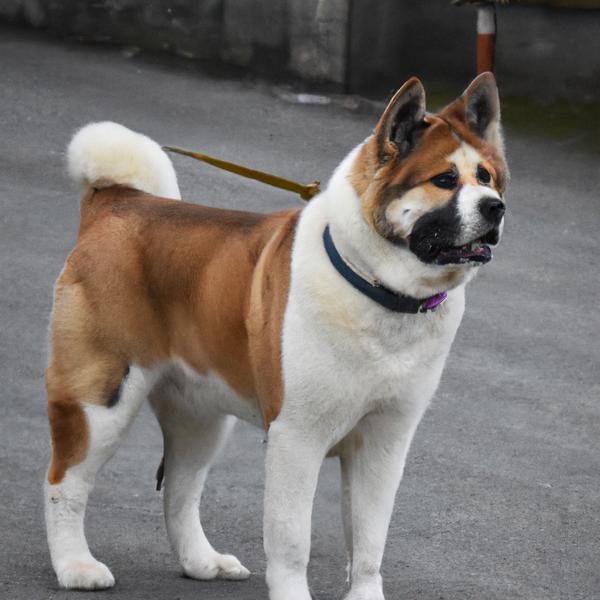
Bullkita
Schweenie vs Bullkita
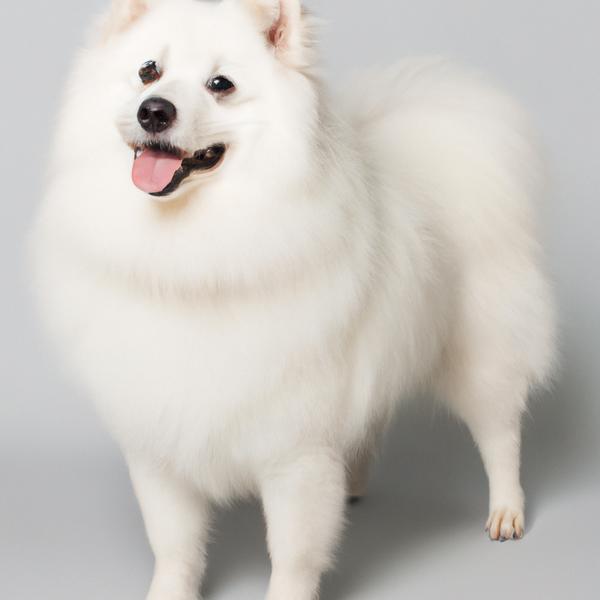
American Eskimo
Schweenie vs American Eskimo
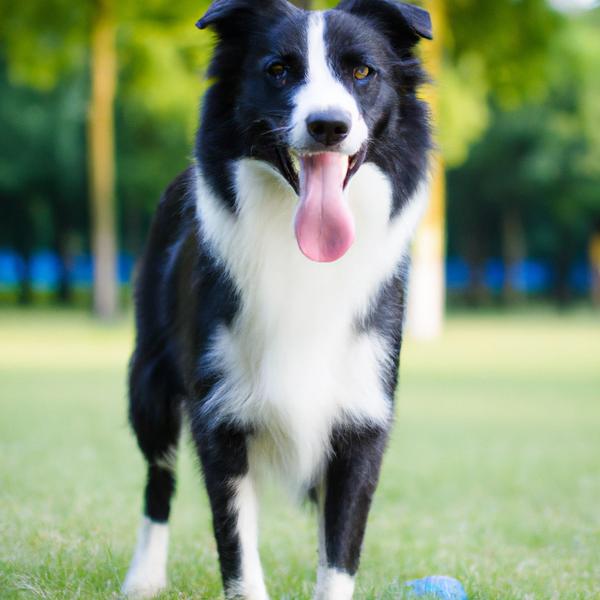
Border Stack
Schweenie vs Border Stack
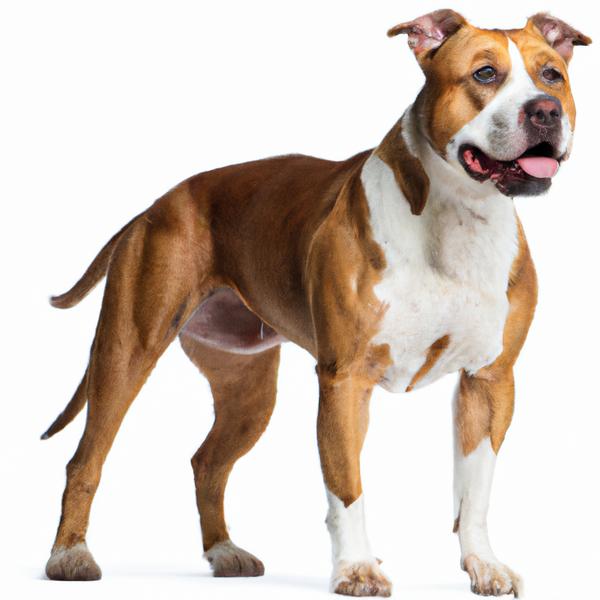
American Staffordshire Terrier
Schweenie vs American Staffordshire Terrier
